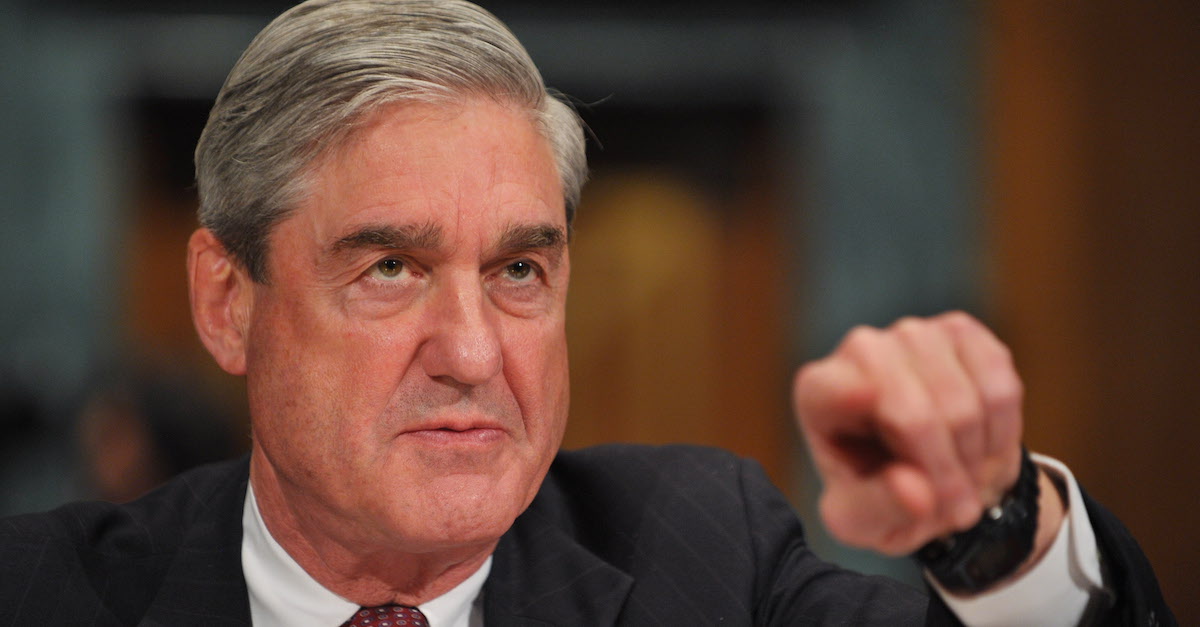
An interesting last couple of weeks for the attorneys defending Concord Management and Consulting LLC just got worse, as an already ticked off federal judge has denied the defense’s discovery request.
Special Counsel Robert Mueller and Concord attorneys Eric Dubelier and Katherine Seikaly have been locked in a dispute over evidence. While Mueller has maintained that there was certain “sensitive” information that should not be shared with the defense in discovery, Concord has countered with all manner of bizarre filings.
Judge Dabney Friedrich made herself quite clear that Dubelier’s filings referencing “nude selfies” and Animal House were not in keeping with her standards of professionalism. Friedrich took issue with Dubelier’s “clever quotes,” calling them “unprofessional, inappropriate, and ineffective,” adding, “I will say it plain and simple: knock it off.” Dubelier responded by accusing the judge of having a “bias,” defending his words as “the truth,” and–most noticeably–telling the judge, “That’s your opinion.”
Concord’s attorneys replied to say that they started getting death threats after this rebuke in court. Lost in all of that, however, was the actual dispute: that Concord is apparently “perplexed” that they are the ones who have to “establish [that they are] entitled to discovery” requested. Dubelier has on a few occasions said a defendant being denied access to the evidence against it was what made this case a “first-of-its-kind prosecution” of a “make-believe crime.”
Despite Concord’s protestations, Judge Friedrich sided with Robert Mueller on Friday, denying Concord’s attempt to force Robert Mueller to reveal “confidential” evidence in discovery.
Mueller has argued that Concord isn’t entitled to the information, and said there were more grounds than before for a private chat with the judge about the issue.
“Indeed, given that the Government’s proposed addendum to its forthcoming public filing would contain classified information, the grounds for considering that information ex parte are only stronger than before,” he said. “And, given that the information is classified, and that disclosure of the information could cause exceptionally grave damage to the national security, an ex parte submission is the only means by which the Government can provide the information to the Court.”
As Law&Crime previously reported, Concord has claimed Mueller is unlawfully keeping “millions of pages of non-classified discovery” materials away from the defendant and attempting to “whisper” secrets to the court in ex parte (one party only) discussions. In questioning the Mueller argument that the national security of the United States is at stake, Dubelier countered, “Could the manner in which he collected a nude selfie really threaten the national security of the United States?”
Mueller combatted this argument by, once again, citing the national security concerns of the United States.
“[T]here exists ‘good cause,'” he said, “to consider and impose restrictions on the dissemination of discovery (particularly restrictions pertaining to the fugitive co-defendant, Yevgeniy Prigozhin) to ‘protect the important national security, law enforcement, and privacy interests at issue in this case.'”
[Image via Mandel Ngan/AFP/Getty Images]